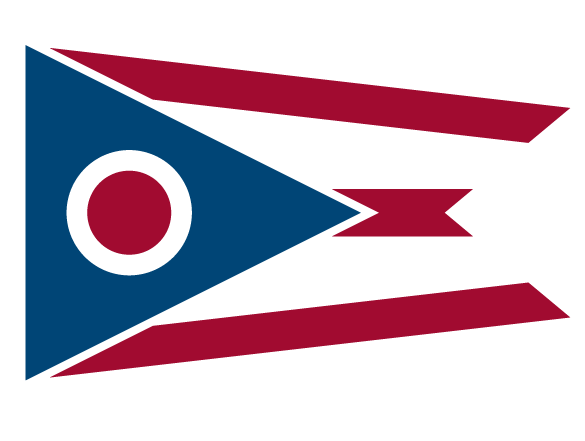Juvenile Division, Union County Court of Common Pleas
Diversion
Juvenile delinquency or unruly behavior cases originate with the filing of a complaint by the Union County Prosecuting Attorney. Complaints are reviewed and selected if they appear appropriate for diversion based upon criteria established by the Court. Typically, youth who have no prior official or unofficial record (first-time offenders) and who are alleged to have committed status (unruly, truancy, or curfew violations) or misdemeanor-level, non-violent offenses are eligible for diversion.
The Probation Department conducts an eligibility screening of the youth and parent/guardian. If the youth is determined eligible, the youth and family must acknowledge the youth committed the offense and a Diversion Program fee must be paid. Depending on individualized programming needs, additional fees may apply. All terms, plus a deadline to complete them, will be included in the youth’s Diversion Contract.
The Diversion Contract includes tasks and requirements designed to remediate the offense, to provide a learning opportunity for the youth and to serve as a consequence or deterrent for further illegal behavior. Terms could include: appropriate skills-building instruction; letters of apology to any victims; restitution; community service hours; a written essay on a subject related to the offense or to the youth’s future goals; mental health screenings and full participation in recommended services; drug screening; and other terms that the officer believes are appropriate. Parenting skills instruction may be required for the parent/guardian.
If the youth successfully completes diversion, the Court will order the matter sealed. If the terms of the Diversion Contract are not fulfilled, the original complaint will be filed and the matter will proceed formally.
Cognitive Behavioral Interventions for Youth
Many moderate to high-risk youths can participate in Cognitive-Behavioral Interventions - Core Youth (CBI-CY), created by the University of Cincinnati and initially offered by the probation department in 2019. CBI participants meet twice per week for twenty-three weeks in a group setting that provides a thorough intervention to broadly target all criminogenic needs in moderate to high-risk youth.
Probation officers are trained to lead the group with a cognitive-behavioral approach to manage risk factors in a way that is developmentally appropriate for youth. CBI places heavy emphasis on skill building activities to assist with cognitive, social, emotional, and coping skill development. The probation department also developed and provides a shortened, modified version of CBI-CY, carefully targeted to deliver benefits of the curriculum for low-risk youth who are not appropriate to participate in the standard program.
Ohio Youth Assessment System (OYAS) Assessments
All youth adjudicated of an unruly or delinquency offense receive an Ohio Youth Assessment System (OYAS) assessment, which determines the youth’s likelihood of recidivating in seven (7) targeted criminogenic need areas. The OYAS risk-need level assessment is critical to form the department’s response to the youth’s individualized needs, and follow-up screenings are periodically conducted to measure progress and further guide the use of appropriate interventions. Youth eligible to participate in the Court’s Diversion Accountability Program are screened with the Ohio Youth Assessment System-Diversion (OYAS-DIV) tool.
The probation officers also screen the youth for exposure to adverse childhood experiences (ACES) and trauma in furtherance of the Court’s long-standing commitment to provide trauma informed services and responses.
The Carey Guides for Youth
To reinforce behavioral change, Juvenile Probation Officers are trained and utilize the long-term case management strategies set forth in The Carey Guides, an intervention program for moderate to high-risk youth. Probation officers guide the youth to understand the personal and environmental factors underlying their offending behavior and teach the youth skills to achieve lasting behavioral changes.
Brief Interventions for Youth
The Probation Officers are also trained to use Brief Intervention Tools (BITS) to address key skill deficits for moderate to high-risk youth in short, structured interventions. Youth learn a variety of skills including, but not limited to: prosocial decision making, overcoming automatic responses and thinking traps, problem solving, and examining unhealthy relationships.
Parent Project Group for Parents
The Parent Project® is a 40-hour clinical group and parenting course for the families of delinquent and unruly children under the jurisdiction of this Court. Families with identified parenting needs are taught by specially trained staff members who received initial training in 2013, funded by an ODYS grant. Families Matter, a non-profit organization that supports the mission of the Union County Juvenile Court to strengthen and improve the lives of children under the jurisdiction of the Court, provided funds to train two more staff members in 2022.
The Parent Project® is designed to empower parents to increase the effectiveness of their parental monitoring and supervision skills, as well as provide families with appropriate intervention strategies to maintain youth within their homes. Parents learn to calmly address problematic behavior, implement specific sanctions for unwanted behaviors, reward desired behavior and other skills to assist in decreasing negative behaviors that contributed to their child’s delinquent or unruly behaviors.
The classes are held one evening per week for 12 weeks. Curriculum materials and meals are provided by Families Matter. Initially, many parents are skeptical that the program will benefit them, but most conclude the program with a deep appreciation for the positive impact their new, learned parenting skills have benefitted their child.
 An official State of Ohio government website.
Here's how you know
An official State of Ohio government website.
Here's how you know
